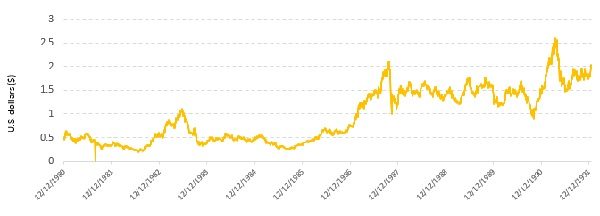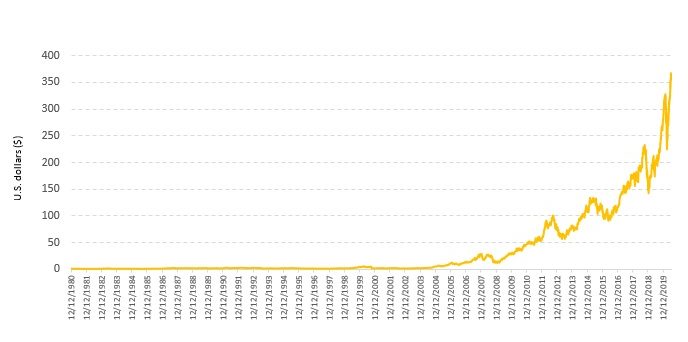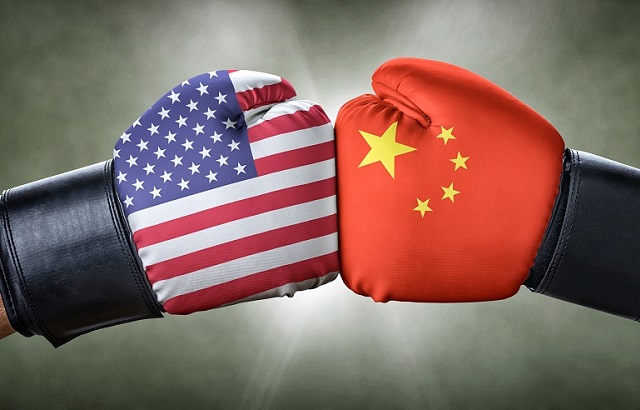At the end of 2019, I remember reading articles reaffirming the idea that this century would be defined by the rise of one great power and the reaction to this by another, writes Rowan Dartington’s Joshua Pond.
It is a story that has played out many times throughout our history.
These two powers which I refer to are, of course, the People’s Republic of China and the United States of America.
Last year’s global stage was dominated by these two nations, jostling for economic influence in a trade war.
Since that time, we have seen a global pandemic sweep across the world killing many hundreds of thousands of people.
Covid-19 continues to haunt us, which is widely believed to have originated in Wuhan, a Chinese city I know well having lived there in 2012.
Distrust and suspicion
The fallout from the covid-19 pandemic may have just fast-forwarded what was already a rapidly deteriorating relationship between the west, its allies and China.
UK foreign secretary Dominic Rabb said, at the height of the pandemic in Britain, that it “would not be business as usual with China” once the country had recovered from the crisis.
This tension has, in large part, been driven by the perceived lack of transparency by the Chinese government on where the virus originated from and how it has spread.
Since then, the Chinese Communist Party has pushed through laws in relation to Hong Kong’s security, further souring relations, and recent skirmishes have occurred along the Chinese/Indian border high up in the Himalayas.
The golden age of Sino-British relations declared by the Cameron government, where Xi Jinping was welcomed to London for a state visit and dined with the Queen was only five years ago.
This now seems a distant memory.
What this changing relationship could mean for equity markets remains clouded, markets will react negatively in the short term to any deterioration in relations or renewing of a trade war.
However, we do not have to look back far into the history books to see a clash between two great powers that could offer up some insight.
Not so distant past
The Cold War between the United States and the USSR only ended in 1991.
During this time, markets continued to produce many brilliant companies generating strong returns for investors.
Apple, founded in 1976, and Microsoft, in 1975; two behemoths that are dominating markets today that were created during the cold war.
The charts below show Apple’s share price.
The first shows the share price from 1980- 1991, during much of this time the USSR was engaged in a proxy war in Afghanistan, with the local mujahedeen supported with finance and weapons by the United States.

The second chart shows the share price of Apple from listing to present day.

In that time, wars have been fought and there have been many major events that have rocked markets, but Apple has continued to thrive.
This gives us faith that, over time, the market system that drives the global economy will continue to produce satisfactory returns for the patient, long term investor, regardless of geopolitical instability.
Having said that, China has undeniably been the major driver of global growth over the past few decades and any further breakdown in relations or future trade wars will severely stunt that growth.
The United States will, over time, have to learn to live with a stronger more assertive China.
Xi said in 2015 “the Pacific Ocean is big enough for both powers”, but history teaches us that the likelihood of friction between the two remains high.
What about the UK?
On the domestic stage, many British companies will be hoping to take advantage of any government contracts that may become available due to the changing relationship with China.
Huawei’s involvement in Britain’s 5G network has once again come under scrutiny.
Nuclear power and key infrastructure projects may also be reviewed due to the changing relationship.
Some British businesses will undoubtably benefit from a government refocus on using homegrown businesses to build and maintain key national infrastructure.
Economies around the world are currently suffering from the effects of a lockdown created by the pandemic, and the full impact of this is still unknown.
The last thing that is needed now would be a resumption of a trade war that could further damage a severely weakened global economy.
November deadline
But, with an election in the US on the horizon, the rhetoric from president Trump towards China is likely to increase.
Maintaining a well-diversified portfolio will be key, and companies or funds with exposure to the US/China trade relationship should be viewed with caution.
Many well-known companies may have more exposure to China than is apparent at first glance, and here is where active managers can add value doing the detailed analysis on client’s behalf.
Markets will watch these events closely as the importance of the China US relationship will remain pivotal.
This article was written for International Adviser by Joshua Pond, technical investment writer at Rowan Dartington, a St James’s Place company.








